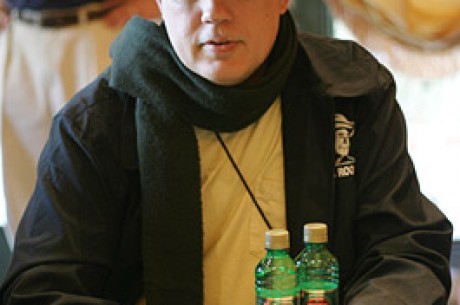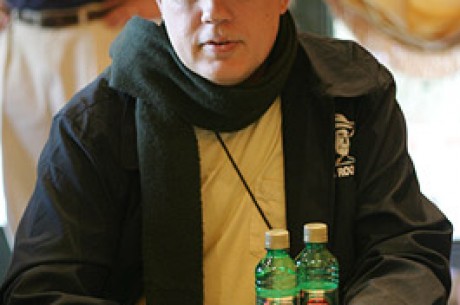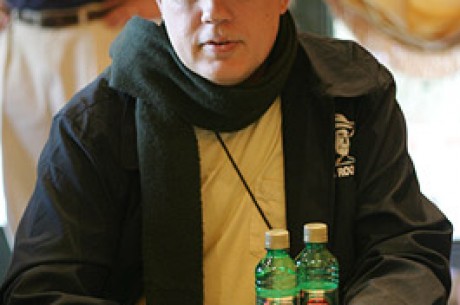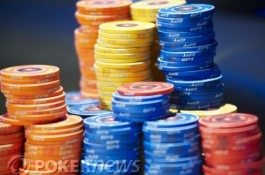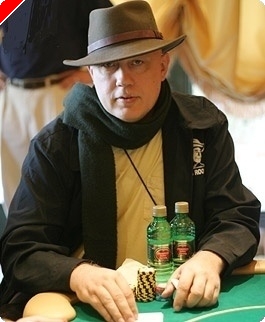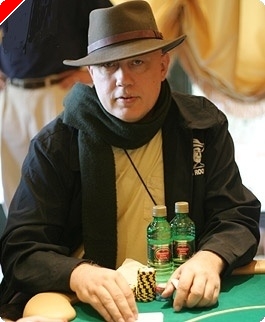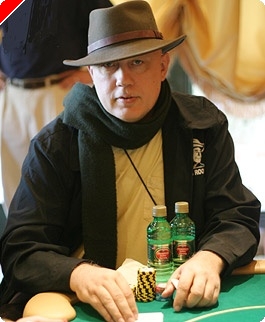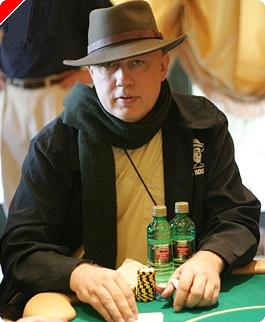Inside The Tour �C 66 �C More Thoughts on Euro Poker
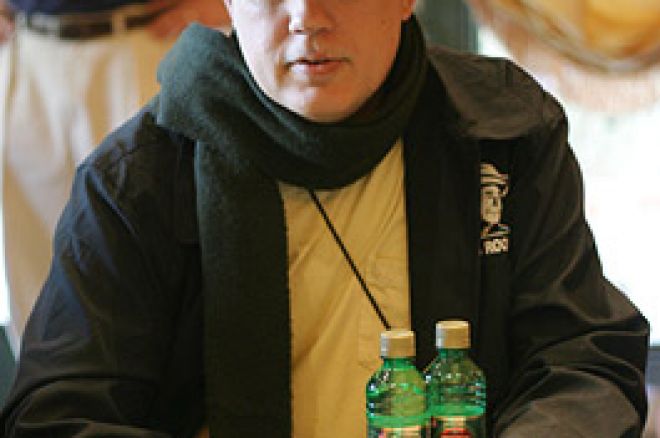
For this column, I will give the rest of my impressions of Copenhagen and the EPT event there and then we will move on. The city is delightful, pure and simple, and so I recommend vacationing there without any reservation at all. As for the poker I will make some more observations.
I played in two 10,535 dkk (about $1,800 U.S.) events while there; one was on Monday [Jan 15] before the EPT tournament and the other was on the Saturday [Jan 20] that ran simultaneously with the final table of the European Poker Tour event. The first event I only lasted two hours in as I put all my money in with what turned out to be a 12 card out [any ace or the nut flush versus KK] and left before seeing and hearing very much.
The second [added] event was much more interesting for me as although no confrontations happened in the first hours I came back from the 8300 in chips that I held [we started with 10,000] when I called a raise to 600 with KhQh from the big blind where an early midfield player raised and a hijack position player called. The flop brought Q66 and for all practical purposes I was committed to the hand as most variations would play themselves out. I checked and the raiser bet out 1800 [into a pot of 1900], the caller mucked and I check raised all-in. There is a pot of 5500 with my raise an additional 5900, in all likelihood the loser of this pot will be fatally crippled. Once he did not call within a few seconds I knew that it was likely that my hand was the best one as he has to call with AA or KK, and almost surely will with AQ, although sometimes players will take some time to call with these three hands. Gavin Smith was telling me this past summer how much he loves it when people make bets that cannot possibly be called unless they are beat. Is this true? This is the hole in no-limit holdem that is pointed out in Kill Phil and no matter what players that like to take a lot of flops will tell you a barrage of all-ins is no fun to play against. My opponent took several minutes to lay his hand down, after which he asked what I had. "You obviously had TT or JJ" I replied. "No," he immediately replied and the conversation went no further. If he was telling the truth he either laid down a Q, most likely KQ, or had no business taking three minutes to act.
I was moved to the other room after doubling up again with QQ versus JJ and although I was too far away to see the last few hands of the Elky-Magnus shootout at least I was not getting jostled about while it happened. The other room was much more pleasant with the last six tables of my tournament operating with far less smoke and far less noise. The very first hand was dealt and a dinner break was announced so I looked at my cards prematurely--AdAh!!! Well, I had been here before without a good experience, twice the players all ran from the table to get as far ahead as possible on the dinner break of 40 minutes and once I got a bad beat [at the WSOP 10,000 dollar buy-in].
This time was different. I believe the blinds were 200-400 with a 50 dollar ante and under-the-gun began a limp parade with five limpers in front of me. I was in the cutoff and made it 2200 to go off my stack of about 24,000. Clearly I want to be called while holding this hand but consider one opponent to be enough, and with one opponent my edge is magnified--my rule of thumb is that a normal raise to make this happen is three times the big blind plus one big blind for every limper--so in this case the "correct" raise was to 3200. That seemed like a high number to me from a 400 dollar big blind so I compromised a bit. Now all the players mucked and rushed from the room until the big stack on my right went into the tank and finally called. It later was made known to me that he was "William" a player that had been voted the Scandinavian cash player of the year at a banquet the previous Tuesday night. The flop came KQ2 with two diamonds and he checked, I now bet 5800 into a pot of about 7050 and he took a long while to decide to check-raise me all-in. Now he had been very deliberate to this point in time and I did not think he was bluffing so what did he hold? My best guesses were AK which I have crushed, JT of diamonds which I am a favorite over, a set of deuces which have me in big trouble, or KQ which has me in serious trouble. I had some secondary guesses as well but they do not matter as I decided that I could not lay this hand down as he most likely held AK or KQ of any, or JT of diamonds. I called and he turned over KJ. It came T and then J, giving him two pair and me the nut straight, I went to a chip position near the chip lead and despite several sags went back to near the lead a number of times.
After dinner things got more interesting in that the chattering in Scandinavian languages began in earnest �� it seemed that I was the only one at the table that did not have a clue as to what was being talked about but there are two things that happened numerous times that should never happen if you are serious about running the tournament professionally. The first was that one player would raise and another would move all-in for a large re-raise. Now the first player to have raised would start speaking a stream of language and head to the rail where he would consult with others [about his correct action?]. Of course that hand should be dead the moment he leaves the table or talks to anyone else, but not here... The second thing that happened numerous times was that someone would limp or raise and be raised or re-raised and now other players would begin to pepper the player to act with comments, which he responded to!!!! Wow! At no moment should the person to act be addressed in my opinion. If it is about the hand it is totally illegal, if it is not about the hand it surely affects the state of mind, or thirdly slows the game down to a crawl. The game was incredibly slow, I could even say painfully slow.
Per Ummer, who some may recognize from his appearance on a final table of the WPT last year, requested that everyone speak English when he learned that I did not speak a Scandinavian language but the dealer told him that this was not required, that EPT rules did not apply. I found this interesting as during the seven hours or so that I had played in the EPT event not once had a dealer ever enforced such a rule. I had assumed that all the tournaments were bi-lingual as Scandinavian languages were being spoken during about 50% of the hands.
Speaking of dealers - let me mention that in the mid-nineties I trained dealers for one casino in California and that it might seem very simple to most but it is actually a job where a lot of skill can be used. I had a checklist of 143 details that these dealers were expected to know and apply the knowledge of and the tournament dealers in Copenhagen routinely did about 40 things that I would find unacceptable. 40. That is a big number, perhaps a huge number. If I go to a random place and play I expect about ten unacceptable procedures from the dealers and two from the floorpeople.
Marcel Luske was at this tournament and reiterated his desire to get the IPF [International Poker Federation] working in a useful way. For several years he has told me of his desire to have standard rules and procedures for tournaments around the world. After attending this event I can see why it is of such importance to him. My observations were that this tournament was at least ten years behind acceptable standards of its American counterparts.
At the bubble [13 players] I had well above average chips [allegedly] of 123,000 when this hand came up at 2000-4000 blinds and 500 antes. My opponent raised it to 11,000 as second to act on our 7 handed table from a stack of 79,000 and had appeared to be somewhat sensible to this point in time. I held 44 in the big blind and one can make a reasonable case for any action that one wishes to justify here--re-raise, move all-in, fold, or call. I chose call as if I did not like the flop punting the hand would still leave me well above average chips. It came 763 rainbow and after 45 seconds or so I bet 22,000 into the pot of 26,500 with the theory being that if he only held two overcards he had to let it go and that he would raise only if he held an overpair or better. Well he moved all-in immediately. What should one do now? It is 46,000 more to call [after a requested count] and the pot is already 70,500. Nonetheless I went with my first intention and mucked, if I was intending to go all-in with the hand no matter what then I would have checked to him and then moved all-in.
Until next time play good...and get lucky!

